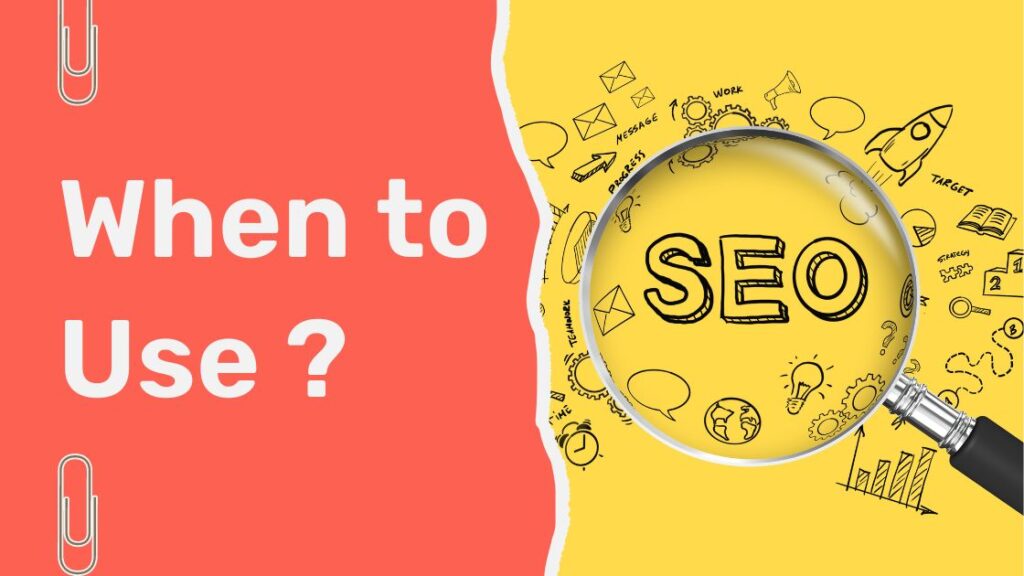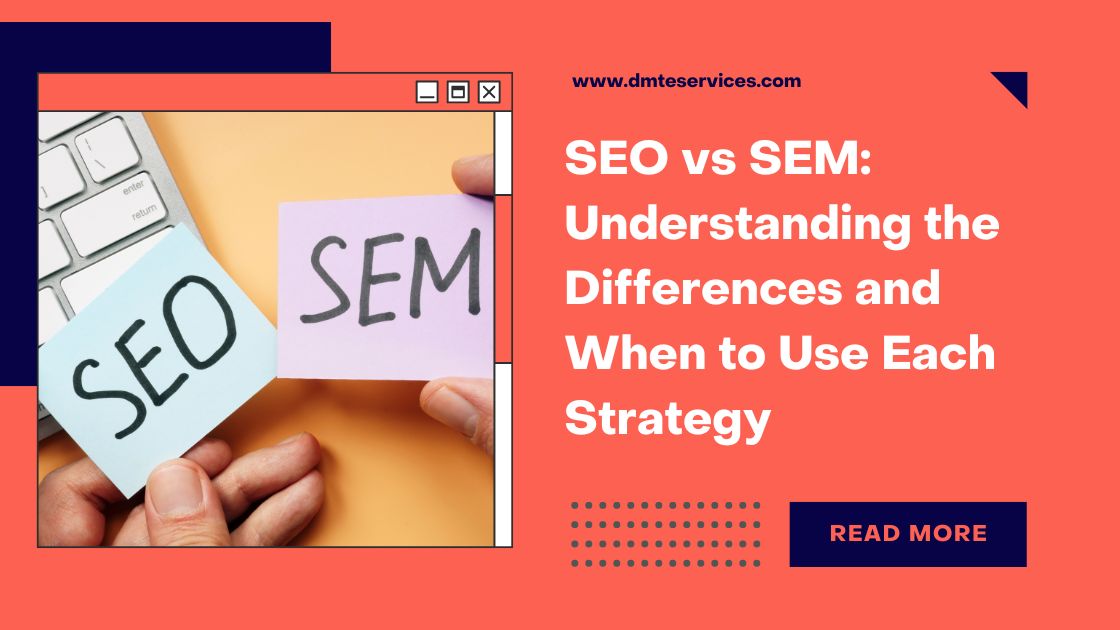SEO vs. SEM: Understanding the Differences and When to Use Each Strategy
In the vast landscape of digital marketing, Search Engine Optimization (SEO) and Search Engine Marketing (SEM) stand out as two powerful strategies that can significantly impact a business’s online presence. Understanding the nuances between SEO and SEM is crucial for businesses looking to maximize their digital marketing efforts. Let’s delve into the key differences between these two strategies and explore when each should be utilized.
Table of Contents
SEO: The Foundation of Organic Growth

Search Engine Optimization (SEO) is the practice of optimizing a website to improve its visibility in organic search engine results. This involves various techniques such as keyword research, content optimization, and link building. SEO focuses on enhancing a website’s relevance and authority to rank higher in search engine results pages (SERPs).
Read more : What is SEO and How SEO can Help Your Business in 2023?
SEM: Instant Visibility through Paid Advertising
Search Engine Marketing (SEM) involves paid advertising to promote a website’s visibility in search engine results. SEM typically includes pay-per-click (PPC) campaigns where advertisers bid on keywords to have their ads displayed at the top of search results. SEM offers businesses immediate visibility and control over their ad placements.
When to Use SEO ?

SEO is a long-term strategy that requires patience and consistency to yield results. It is best suited for businesses looking to establish a strong online presence and build credibility over time. Here are two scenarios where SEO shines:
Building Organic Authority
For businesses aiming to establish themselves as industry leaders and build long-term credibility, SEO is the ideal strategy. By consistently producing high-quality content, optimizing for relevant keywords, and earning backlinks from reputable sources, businesses can improve their organic search rankings and attract a steady stream of organic traffic.
Long-Term Brand Visibility
SEO is particularly effective for businesses with a long sales cycle or those targeting specific niche markets. By investing in SEO, businesses can ensure sustained visibility in search results, leading to increased brand awareness and trust among their target audience.
Enhancing User Experience
Another key aspect where SEO excels is in enhancing user experience. By optimizing website speed, mobile responsiveness, and overall usability, businesses can improve their search rankings and provide a better experience for visitors. A seamless user experience not only boosts SEO performance but also increases user engagement and conversions, ultimately contributing to long-term success.
When to Use SEM ?

SEO is a long-term strategy that requires patience and consistency to yield results. It is best suited for businesses looking to establish a strong online presence and build credibility over time. Here are two scenarios where SEO shines:
Launching New Products or Services
For businesses looking to generate quick leads or sales for new products or services, SEM can be a powerful tool. By running targeted PPC campaigns, businesses can reach potential customers actively searching for relevant keywords and drive immediate traffic to their website.
Testing and Iterating Ad Campaigns
SEM provides businesses with valuable insights into keyword performance, ad copy effectiveness, and audience targeting. By running SEM campaigns, businesses can test different strategies, analyze results, and optimize their campaigns for better performance. This data-driven approach can inform future marketing decisions and improve overall ROI.
Remarketing and Audience Targeting
SEM is also highly effective for remarketing and audience targeting. By using cookies and tracking pixels, businesses can identify visitors who have previously engaged with their website or social media channels and serve them targeted ads. This can help businesses re-engage potential customers, increase brand awareness, and drive conversions. For instance, a business selling fitness equipment can use SEM to target users who have previously visited their website but did not make a purchase, encouraging them to return and complete their transaction.
Conclusion
In the dynamic world of digital marketing, understanding the distinctions between SEO and SEM is essential for crafting a comprehensive marketing strategy. While SEO focuses on organic growth and long-term visibility, SEM offers immediate results through paid advertising. By leveraging the strengths of both strategies and aligning them with specific business goals, businesses can maximize their online presence and drive sustainable growth in the digital landscape.
If you’re looking to improve your website’s organic search rankings and establish a strong online presence, consider partnering with a reputable SEO company in Delhi. An experienced agency can provide expert guidance on keyword research, on-page optimization, and link building, helping you achieve your SEO goals and attract a steady stream of organic traffic. By working with an SEO agency in Delhi, you can stay ahead of the competition and achieve long-term success in the digital landscape.


